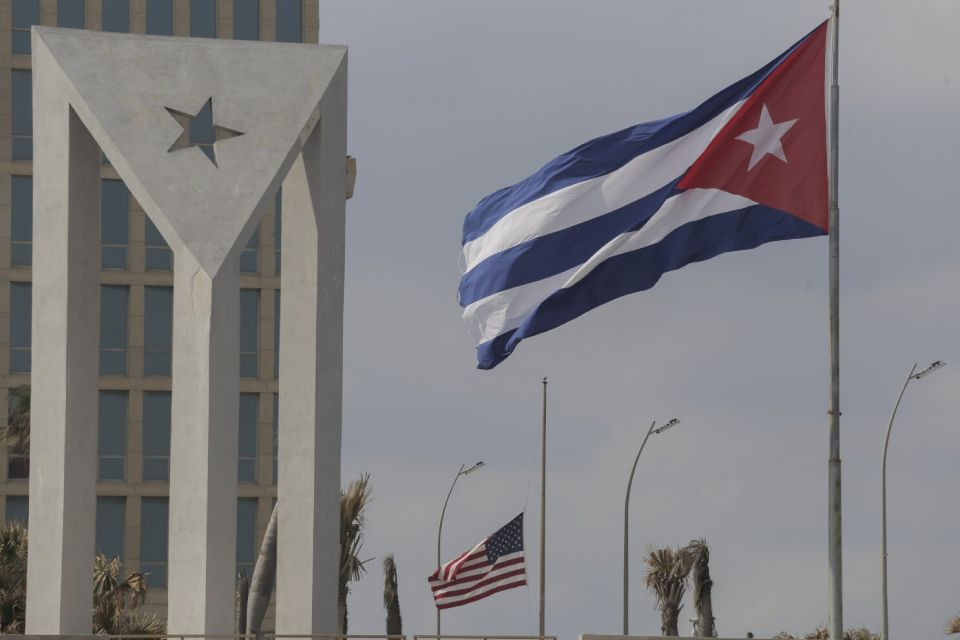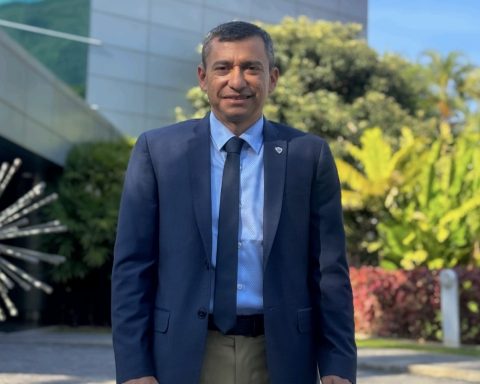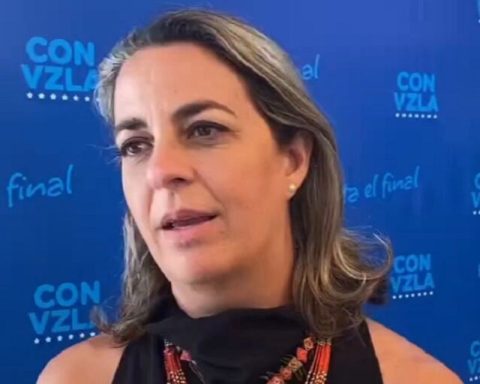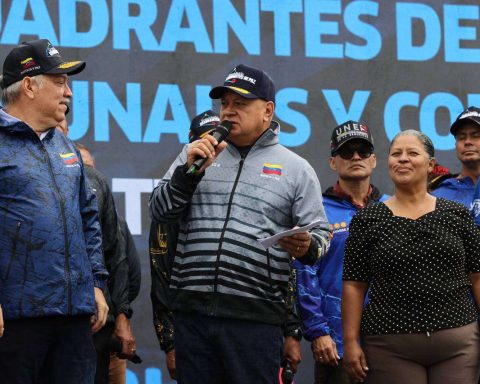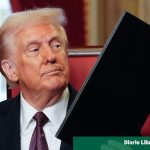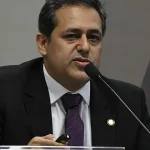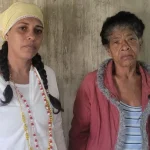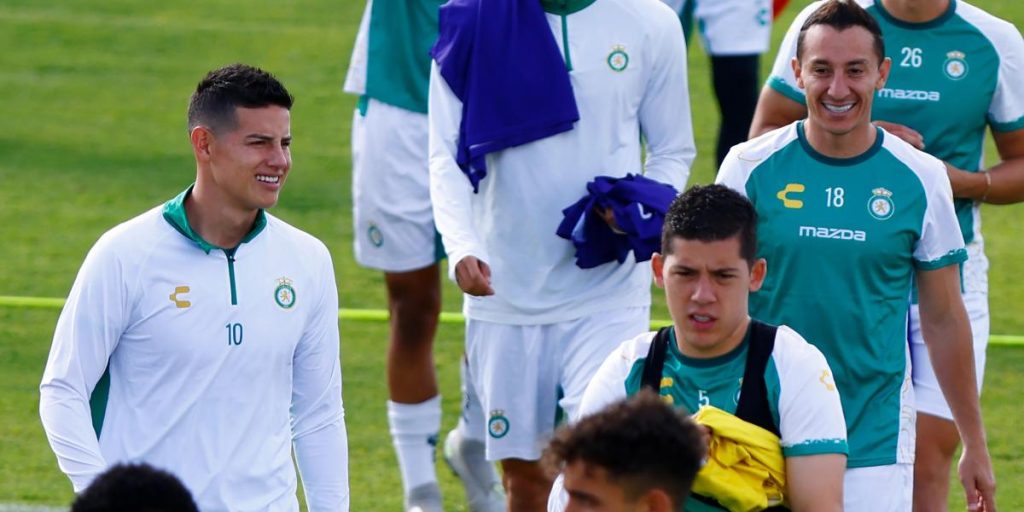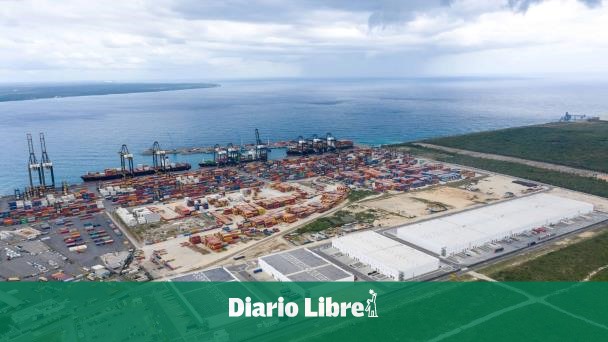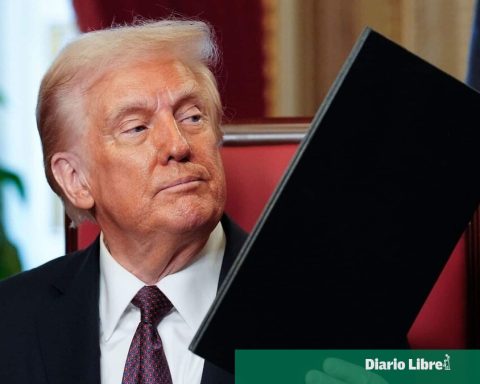The Cuban regime announced that 553 prisoners would be released from the dungeons. This is compensation for the decision agreed upon by the Joe Biden Administration to relax several of the sanctions that weigh on the Island’s economy, such as the possibility of doing business with companies controlled by the Cuban military. In Cuba, emotions of happiness are combined with criticism of how prisoners end up being treated as hostages and the continuity of the revolving door with new arrests
«How do you think I’m going to feel? Get out of hell, be with my family and my daughter, calm. “I feel happy,” were Dariel Cruz’s first words upon arriving at his neighborhood in Havana, the capital of Cuba, after being released early this Wednesday.
Cruz is one of the 553 prisoners that the Cuban regime will release after a Vatican mediation that ended with an unexpected change in US President Joe Biden’s policy towards the island. Relatives of those released from prison indicate that they received a phone call very early to announce their release from prison.
It was already night on January 14 in Havana when the Cuban government reportedthrough his Ministry of Foreign Affairs, that President Miguel Díaz-Canel had communicated to the Vatican his decision to release “553 people punished in due process for various crimes contemplated by law.” An hour had passed since the president of the United States, Joe Biden, announced the exclusion of Cuba from the list of countries sponsoring terrorismwhere it had been consecutively since 2021 when it was included under Donald Trump.
In Washington, Biden announced his decision just five days before leaving power, justifying the “rescission” of the Island’s inclusion on the list on the basis that “the Government of Cuba has not provided any support to international terrorism during the six preceding months” and “has given guarantees that it will not support acts of international terrorism in the future.”
In the Cuban capital it was only known that there would be 553 releases, without official information on who would benefit or under what conditions they would be released from the cells. There is also no certainty as to whether they are political prisoners or other defendants as well. On Wednesday, the vice president of the Supreme People’s Court, Maricela Rosa Rabelo, declared on state television that the “early release benefits” have been given to defendants charged with “dissimilar” crimes. The official listed: «Patrimonial crimes such as crimes of theft, robbery with force. There are threats, there are injuries, there are disorders. There are also some people who were punished for sedition, but sedition is not a political crime.
The crime of sedition was charged to the protesters of July 11, 2021 – the last cycle of mass protests in Cuba – who received the highest sentences, up to 20 years in prison when they were announced.
The Cuban Observatory for Human Rights (OCDH) published a list of the first 14 people released from prison this Wednesday, “without the total magnitude of the operation being known yet.” Several of the beneficiaries were imprisoned in 2021, including Rowland Castillo, who was 17 years old when he was arrested, and several other people who were even searched at their homes after participating in protests.
In its statement, the OCDH stated that the agreement to release 553 detainees from prison “apparently also benefits ordinary people,” and highlights that the number of those sentenced for political reasons exceeds a thousand.
«They are not going to be released completely. They are going to be released on conditional release, with extra-penal license and with subsidiary sanctions. And many of them were already close to serving their sentence. For example, today I spoke with three and they had two or three months left to extinguish the sanction,” reacted the opponent Librado Linares García, general secretary of the Cuban Reflection Movement (MCR), released in 2011 after eight years in prison. «In any case, I feel a lot of joy. I was a political prisoner and I was also released. And that feeling of being on the street, of course, gives joy,” he added. to RFI.
Some of those released have “serious health problems that have been ignored for years by the authorities,” denounced the NGO, such as the case of Reyna Yacnara Barreto Batista, released with “extra-penal license” by the Supreme Court, with a sentence that now He does admit his psychiatric illness.
Without full freedom
The organization Prisoners Defenders (PD) warned that the ambiguous vocabulary of the Ministry of Foreign Affairs made them fear that these were not liberations but releases, two words that appear used as synonyms in the government statement, without being synonymous, in addition to the words of the Supreme Court official. «Releasing, in Cuba, is not liberating. In that case, some would obtain conditional release, others perhaps extra-penal licenses, and others a series of punishment subsidies, including forced labor without confinement,” says a text released by the NGO after hearing the news.
The NGO also recalled that the release of the inmates occurs after 16 arrests for political reasons occurred in December alone, for a total of 58 in the last quarter. “A total of 1,219 political prisoners have been on the list in the last 12 months, all of them tortured,” underlines the document, which also regrets that, even in the impossible case that all the beneficiaries of the agreement were imprisoned for political reasons, politicians, hundreds of people would remain behind bars, imprisoned just for expressing their opinion or demonstrating.
Just hours before the announcement of the releases, it was learned of the convictions of two young Cubans who received prison sentences of four and five years for calling on Facebook for a protest against the Cuban government, which did not take place. A court in Santiago de Cuba considered a crime of “propaganda against the constitutional order.”
The Cuban authorities have not given further details about the alleged agreement for the release of these prisoners. The opposition asks to stop using detainees as bargaining chips.
According to Librado Linares García, “What Cuba needs is not a selective pardon for 553 political prisoners, there are 1,161. What is needed is an amnesty. Amnesty means forgiveness. The reasons for which they were released must be removed from the Penal Code and, consequently, we must apologize to these people, because all they did was exercise their rights: the right to demonstrate, to peaceful public protest, to assembly, to association. “Sometimes they mask it with other crimes, but that is at the core of the problem.”
A good part of those who will be released these days in Cuba are the prisoners detained after the historic protests of July 11, 2021. A repression that stopped the demonstrations, but not social discontent.
«Hundreds of political prisoners continue to enter Cuban prisons. What happens is that since there are not so many at once, as was the case as a result of the protests, perhaps they do not attract as much attention, but the political prison in Cuba continues to grow with new prisoners,” stressed the general secretary of the Cuban Reflection Movement. «There is a police State, there is a set of factors and situations that occur in a totalitarian regime. To some extent they have contained the protests, but there is very great discontent,” he added.
The NGO Justicia 11J said it is attentive to whether those released will be forced to leave the country, as happened with the majority of those belonging to the group of 75, imprisoned during the “Black Spring.” In that case, also mediated by the Vatican and Spain, all those who agreed to leave Cuba in 2010 were released, and a year later those who refused.
In this video, the emblematic opponent José Daniel Ferrer recounts how he was taken from the cell and the conditions that were imposed upon his release, with the threat of putting him back in prison:
Change in Washington
Joe Biden’s decision came just a month after the White House decided to leave Cuba on the aforementioned list for another year, which also includes North Korea, Iran and Syria, countries that Washington accuses of “providing repeated support.” to acts of international terrorism. The Secretary of State himself, Antony Blinken, then reiterated that he did not foresee any changes regarding the policy with Cuba before Biden left power.
Among the measures announced is also the suspension of Title III of the Helms-Burton Act – the ability to sue in the US for expropriations on the Island – and the elimination of a list of Cuban Government entities that cannot do business with the United States and They include ministries linked to security, companies belonging to the Armed Forces – such as Gaesa, which controls remittances – and dozens of state hotels. In addition, the limitations to obtain an ESTA – the tourist entry card to the US – will no longer be in force for nationals of more than 40 countries who have been in Cuba since 2021.
Cuba was on the list of countries sponsoring terrorism between 1982 and 2015, when it was removed by the Barack Obama Administration. In 2021, Donald Trump included it again just a week after leaving power.
Post Views: 16
